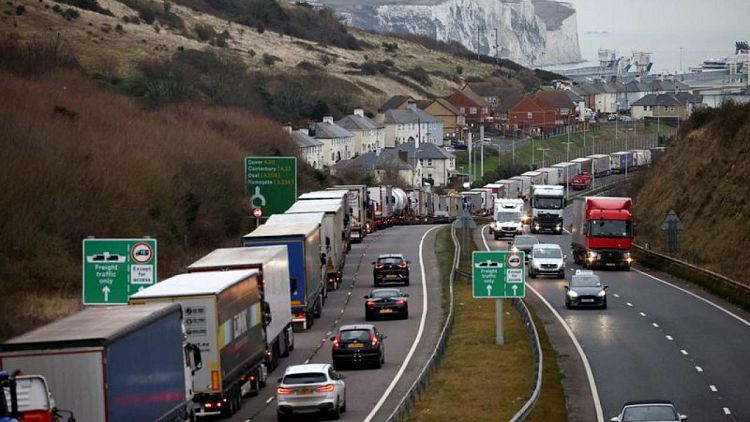By Kate Holton
LONDON - British firms face the introduction of much-delayed post-Brexit border control checks from Jan. 1 which will affect businesses importing $314 billion of goods a year from the European Union.
Britain left the EU's single market at the beginning of 2021 and while Europe imposed checks on goods straight away, Britain staggered and delayed the introduction of a full customs border.
From Jan. 1, 2022, EU businesses sending goods to Britain will now need to supply full customs declarations while traders will also have to prove that goods are allowed to enter tariff-free under rules of origin requirements.
Martin McTague, vice-chair of the Federation of Small Businesses (FSB), warned the switch to import checks was likely to cause significant disruption at a time when trade is already being hit by COVID supply chain problems and labour shortages.
"Our own research found a third of small business importers were unaware of the changes, while among those who did know this was coming, only one-in-four was prepared," he said.
Britain's departure from the world's biggest trading bloc has already had an impact on British exports to Europe, after the government's Brexit deal meant companies had to fill out lengthy documents and pay fees to move goods across the border.
A survey by the British Chambers of Commerce in October showed that 45% of companies found it very or relatively difficult to trade goods with the EU, up from 30% in January when the deal came into effect.
Supporters of Brexit say a more nimble Britain will, in the long run, be able to tap into faster-growing markets, and many larger companies have managed to adapt to the changes by employing additional staff to handle paperwork.
Smaller companies have struggled, however, with those sending small consignments of food or clothes finding that it is no longer financially viable.
Shane Brennan, head of the Cold Chain Federation whose members move frozen and chilled foods, said the cost of a consignment had increased by about 400 pounds ($540).
He said small European firms may ultimately stop sending to Britain as exports of food now require a safety declaration, a customs declaration and a notification with a ports IT system called the Goods Vehicle Movement Service (GVMS).
Additional veterinary checks will come in for food imports in July next year. Full checks between Northern Ireland and Britain have been delayed to allow talks with the European Union to continue in a bid to improve the system.
($1 = 0.7409 pounds)
